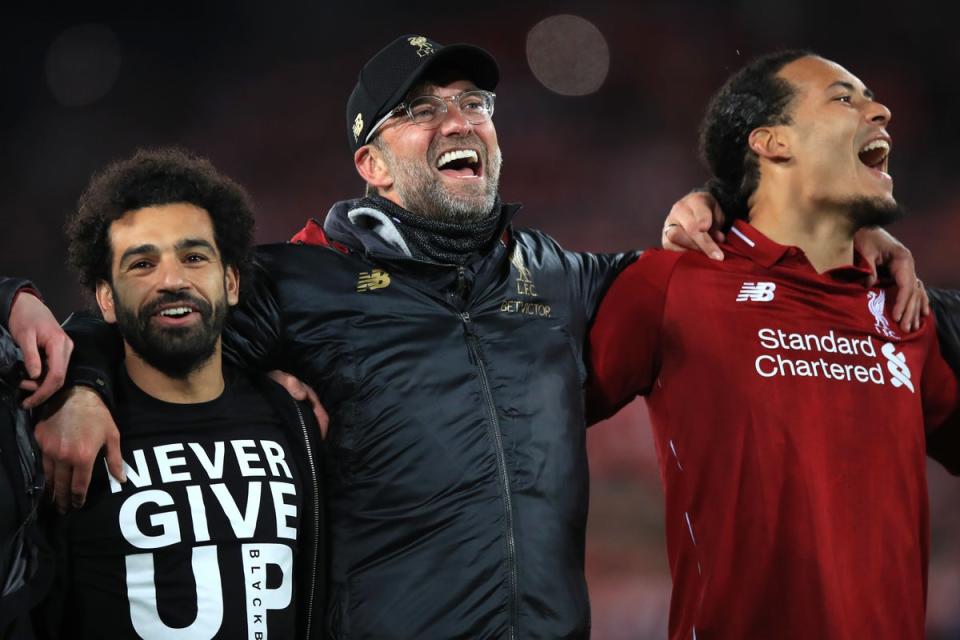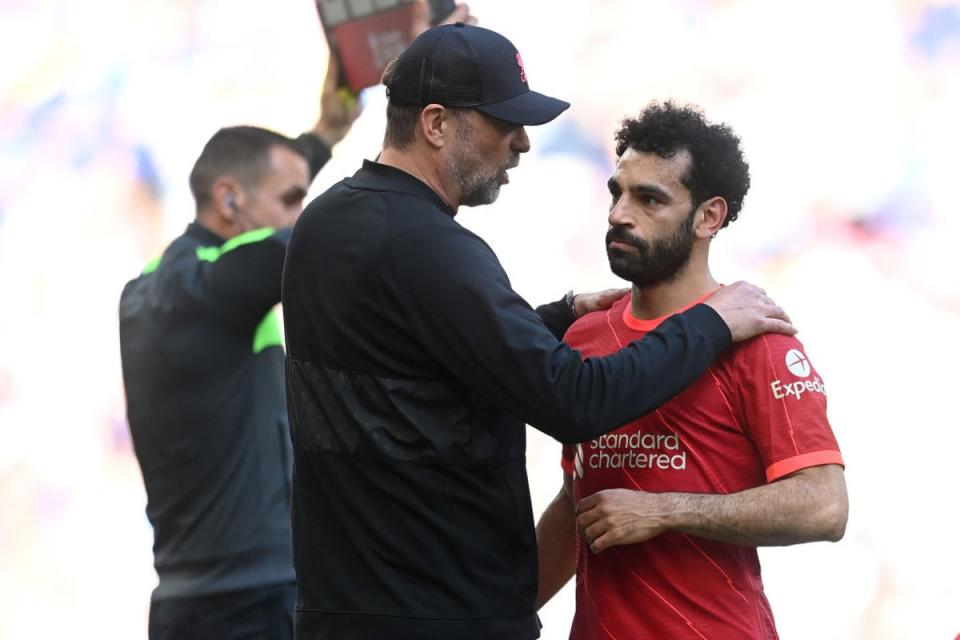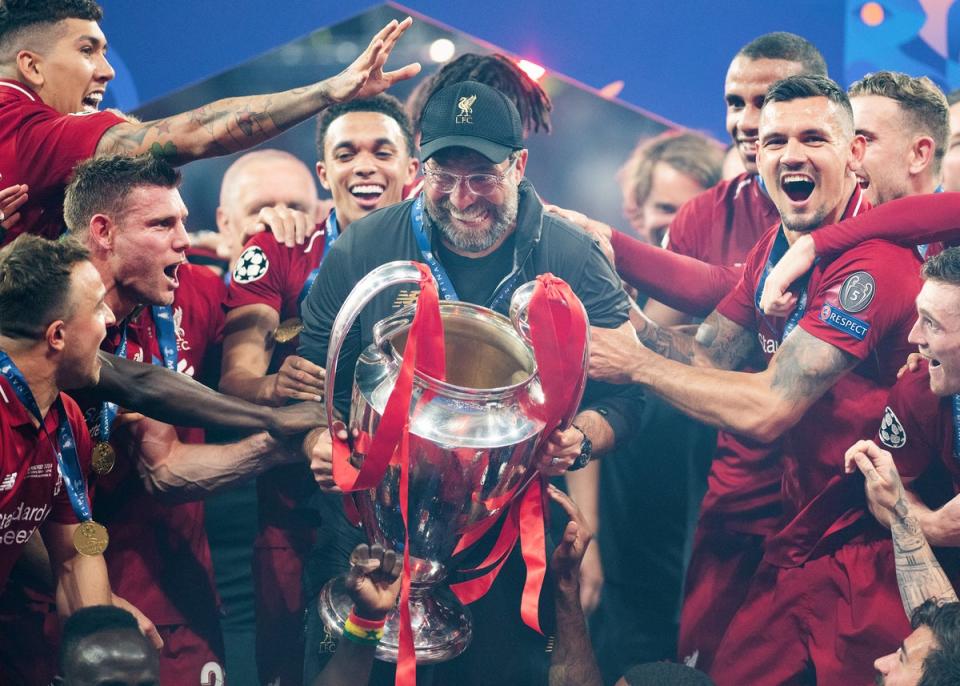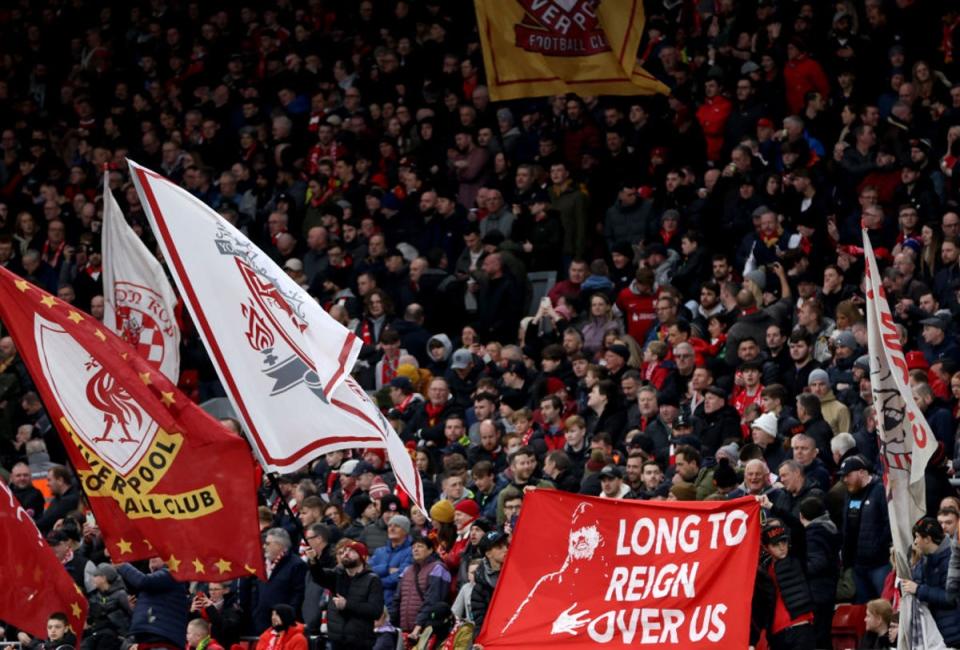Trophies are important but Jurgen Klopp’s Liverpool legacy is about so much more

After all the sound, there’s no fury. There’s only a peace. As Jurgen Klopp departs Liverpool, he has no real regrets. He’s literally won everything, even if there could have been more. There’s a bigger debate about the latter but, even within that, a point has been proven.
When Liverpool’s ownership were seeking to rebuild the club over the 2012-15 period, they gradually modernised every department until they had one of the best recruitment systems in the game. That could take them so far, as we saw in 2013-14 when Brendan Rodgers guided them to second in the Premier League – two points behind champions Manchester City. It just couldn’t take them all the way, not to what Liverpool were. There was still an element missing.
That was something that remains immutable in football, no matter how much the game evolves. Liverpool still needed a charismatic and transformational genius manager to bring it all together. This was the alchemy amid all the scientific analysis. This isn’t to say nobody can succeed without that but it makes an immense difference. And Klopp genuinely made an immense difference, not least to people’s lives.
It’s also important to recognise what English football is losing, too. One of the game’s great figures is departing the stage.
That alone is simply poignant, the passing of an era. It also points to what Klopp is most about and what he will be most remembered for. That is emotion; making people feel something again.
This is something that is easy to scoff at but is arguably more important than any trophy. Klopp brought the joy back. Has there ever been a period when Liverpool fans enjoyed going to games as much? They went to every single match with anticipation and expectation, no matter the circumstances. That could be the 4-0 comeback against Barcelona, which is now his signature performance, or any random league game against a bottom-half club. By 2018, nobody was laughing about the moment after a 2-2 home draw with West Brom when he got the players to salute the crowd. That may have been an act but it evidently wasn’t an empty gesture. It was about deepening an emotional connection that would serve the team in moments like Barcelona or so many other fightbacks.

Klopp didn’t just restore a seriousness to Liverpool. He restored a joy, a feeling. That accomplishment is genuinely up there with reclaiming the league title after 30 years as one of his biggest acts, even if securing the Premier League crown will remain his signature achievement.
The other side of that emotion is that it could evolve into something else, that was much less deserving of celebration. Klopp could be absolutely cutting with people, in a way that went against the initial bear-hug image. That was the case with players, staff and even media. Klopp was capable of saying things that could really hurt.
The brutal reality of elite sport, however, is that this is pretty much the case with all high achievers. They don’t get that far without being somewhat ruthless. That isn’t to excuse it but to acknowledge the reality. It’s also true that, even allowing for his outbursts, Klopp was generally seen as one of the more “normal” elite managers. A much more human touch was seen in how comfortable he was in situations with fans who were ill or had been through tough life experiences. Klopp is extremely natural in such situations.
Such emotion has also totally disproved a barbed line once said about the German himself, by one of his peers. In the summer of 2016, as the Premier League celebrated the “league of great managers”, one top European coach was utterly derisive about Klopp. “He’s won nothing,” the rival said. “The only two leagues he won with Borussia Dortmund were because Bayern Munich were s*** at that time.”
There was then the most brutal put-down of all. “He’s just a motivator.”
That has been thoroughly discredited. Klopp is a motivator but that psychological insight is the virtue that amplifies all of his other abilities to take teams well beyond their expected performance levels. That’s the source of so many improbable comebacks. That’s the source of 97, 99 and 93-point seasons.

The base was still strong, and sophisticated. Liverpool went from a classic Klopp gegenpressing team to one with many more dimensions. There was even a spell, arguably stretching from six months to 18, where they looked close to unbeatable. Liverpool first hounded you into submission and, if you got out of that, the ball was being popped back for a talent like Sadio Mane or Mohamed Salah to provide the divinely creative touches.
By that point, around 2018-19, Klopp’s Liverpool had inevitably developed elements of Pep Guardiola’s pressing and possession game. That is something that inevitably happens with rivalries, as they rub off on each other. There is a historic irony to it, though, given that Klopp could be seen as the anti-Guardiola and Liverpool as the anti-Man City.
This has been the rivalry that has characterised the most recent Premier League era and Klopp’s time in the job. It was also a dichotomy imbued with all manner of other strands and narratives, not least how you resist state projects and what constitutes “success”. Klopp was one of the few figures to publicly speak out about the issue.
There are considerable ironies to that, too, since Liverpool are a member of the game’s establishment and their owners are venture capitalists ultimately looking to exploit the sport by making money out of it. Fenway Sports Group are hardly some force for good in football. This is the modern game though and it is about degrees.
Klopp has won every trophy and yet, at the same time, has probably been the greatest casualty of what City have become under Sheikh Mansour’s ownership as a state project. If they weren’t around, Klopp would have at least three league titles with huge points totals, to go with the club’s sixth Champions League. It would be one of the great glory eras, this Liverpool seen as one of the great teams – with no debate about what they should have won.

One caveat is that City’s levels may have actually helped lift Liverpool up so far. Klopp knew what was required. It was one major reason why there were such drop-offs in 2020-21 and 2022-23. Most teams can’t indefinitely sustain such levels. Something has to give. It’s exhausting – as the man himself will attest. Klopp might also reasonably argue that, if they didn’t have to go so intensely in the league, they might have had a better chance in the Champions League, too.
The Premier League isn’t just losing one of its great figures, it is losing one of the individuals that kept it alive over the last few years. If you remove Klopp’s Liverpool, a lot of those league tables would be a joke, characterised by the sort of points gaps that turn people off. It’s why some at Anfield are quietly pleased that Arsenal now understand the difficulty of competing with this version of City.
This is where the wider debate arises about how much Klopp has won. Although he is criticised in some quarters for “only” winning one league, the German’s greatest legacy should be that he is the only manager to beat City to the title once Guardiola started winning. It basically took the Catalan a season to adapt, as he immediately made the leap from 78 points to 100. After that, it was almost unstoppable, with an average of 91. This is what Klopp has been up against. That lends an element of tragic romance to the German’s Liverpool story, to go with that of Borussia Dortmund against Bayern Munich, but one that almost fits with the emotion of it all. And you can look at the hard numbers, too.
It is still immense overachievement, as directly symbolised by those points totals. Put another way, if it wasn’t for Klopp, City would be winning seven league titles in a row this Sunday.
And so there’s another caveat. City’s alleged breaches of the Premier League’s Financial Fair Play rules weigh over everything. Klopp may well be more invested than most in the eventual outcome, since it could cause a re-interpretation of his entire era. City insist on their innocence.
Regardless of what result the court system belatedly spits out, there should be no interpretation of Klopp’s legacy other than him being considered one of the great, elite managers and a great football figure. His achievements stand for themselves. He won Liverpool’s sixth Champions League and first in 14 years. He won Liverpool’s 19th top-flight title, first in the Premier League era and first for 30 years. All of that produced more memories and great occasions than many clubs have in their entire histories. It’s an old and hackneyed line but it’s never been truer than here. He made the people happy.

As for the lessons, maybe there aren’t many since Klopp is inimitable. It points to the reality that clubs like Liverpool shouldn’t actually try and directly replace someone like him. They shouldn’t imbue a manager with so much power until they have proven they are right for the club. Those at Anfield have at least realised that. They have restructured the football hierarchy so that Arne Slot is just a head coach.
It is an implicit acknowledgement of what Klopp has been: irreplaceable.
At Anfield on Sunday, there will be an explicit acknowledgement of that. The sound, fittingly, should be something else.

 Yahoo Sports
Yahoo Sports 
